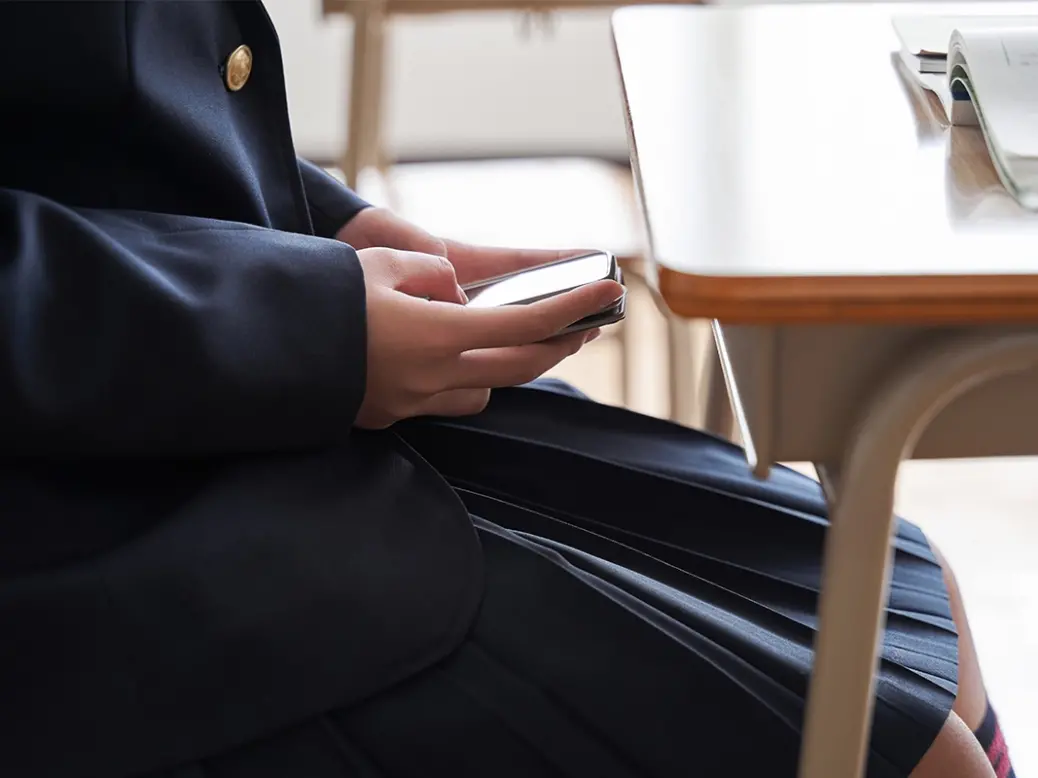
In his 1985 book Amusing Ourselves To Death, Neil Postman lamented the way in which television was, in his opinion, trivialising once serious and coherent discussion of public affairs. In the foreword, he compares the dystopian visions of George Orwell’s 1984 and Aldous Huxley’s Brave New World. While Orwell feared censorship and control, Huxley cautioned against man’s almost infinite appetite for distractions. Postman died in 2003, not living to see the rise of the iPhone and social media, but anyone who has seen a teenager, or for that matter many adults, scroll aimlessly and endlessly through social media feeds, would find it difficult to conclude that Postman’s warnings are more real and alarming with the invention and impact of smartphones and social media platforms.
[See also: Private school enrolments fall amid Labour VAT concerns]
Earlier this year The Anxious Generation was published, a compelling book by the social psychologist Jonathan Haidt. His thesis, and it is one that is backed up by a growing body of evidence, is that children in the developed world often have an upbringing that is a pale imitation of what childhood should really be about. Society has, over the last 40 to 50 years, consistently over-exaggerated the dangers which children are exposed to in the real world. This has led to children having less independence and existing in increasingly regulated environments in which they are rarely out of the sight of a fearful adult. More recently, the internet and the ubiquity of the smartphone have resulted in many children becoming ever more immersed in an online world the dangers of which are consistently under-estimated. The result has been paradoxical. Many parents believe that children are safer – perhaps even happier – at home, especially in their bedrooms, occupied on a screen, when in reality children are being denied the formative childhood experiences which are necessary for healthy development.

This has led to a generation of unhappy children. One in 10 children aged 10 to 17 in the UK are unhappy with their lives, according to a recent study by the Children’s Society. The World Happiness Report 2024, an annual report of wellbeing in 140 nations coordinated by Oxford University’s Wellbeing Research Centre, Gallup and the UN Sustainable Development Solutions Network, found a drop in youth happiness across western Europe.
In recent times, and in part inspired by Jonathan Haidt’s work, parents and schools have started to take steps to alleviate this significant social harm. In the UK organisations such as Smartphone Free Childhood are working hard to delay the age at which children have access to smartphones; there is a live petition calling for the UK Parliament to legislate a ban on smartphones for children under the age of 16, while recent Government guidance has been clear in its support of schools who wish to ban phones during the school day.
[See also: Introducing the Spear’s Schools Index 2024]
However, those who wish to bring about change – schools or parents – will meet fearsome resistance from the economic might of the tech companies, who have been slow to take any meaningful action to protect children. Tellingly the leaders of the major tech companies, including Sir Jonathan Ive and the late Steve Jobs, admitted to raising their own children in environments with limited tech or screen time. I fear the battle will be protracted. The move against smoking is perhaps the best guide we have. Its damaging effects were well known by the big tobacco companies from at least the 1950s, yet it has taken decades for meaningful change to come about. Smartphones and social media have much in common with smoking. They are addictive and do significant harm. But that harm is psychological and is perhaps less obvious.
How schools can make a difference
All schools can make a positive difference to ensuring children have a proper childhood, acting as thought-leaders, guiding parents and students and putting in place policies which limit the damage done by smartphones, especially by banning them in the school day. Boarding schools like Rugby are fortunate to be able to do more. I believe the environment we create can provide a useful case study in how removing smartphones from large parts of a child’s life can help them lead happier and more fulfilling lives.
[See also: Is this the end of single-sex schools?]
More often than not the message is received well by parents, and perhaps surprisingly it is also well-received by many students. A number of students I have spoken to have expressed relief at being freed from the tyranny of Snapchat and other platforms where failure to respond instantly can lead to being ostracised. There are some students who lobby for greater access to their phones, often citing a desire to have more regular contact with friends in other schools. Superficially the argument is a strong one, but often what they are craving is access to social media platforms or large group chats, the point of which is to be seen and noticed, not to continue meaningful relationships.
Several years ago I had a more relaxed approach to smartphones and social media use. I instinctively had sympathy for the argument that children simply needed educating to use their phones responsibly and in moderation. However, my conversations with headteachers, my own experiences, and an increasing body of evidence show my instincts were wrong.

Most of the problems associated with smartphones existed in some form prior to their introduction. Children bullied and were bullied. They looked at pornography. They had eating disorders. Some children suffered from anxiety and poor mental health. But all of these issues have become far more prevalent in the last 15 years. Phones mean there can be no respite from bullying and people can pile in in large numbers; pornography is graphic and easily accessible; social media sites bombard children with carefully curated and idealised versions of people’s looks and lives, while the desperate need to be connected pushes children to pursue vacuous ‘likes’ and connections. Not only are these significant problems in their own right, but the use of social media and smartphones comes with an unacceptably high opportunity cost as children (and adults) have less time for fulfilling activities.
Rugby School is not anti-technology. We embrace technology where it enhances learning. We recognise that it is unrealistic for teenagers not to have some access to smartphones and social media, but phones are not permitted overnight or during the school day, while younger years only have them for short periods of time on a couple of the days of the week. As a full boarding school we are fortunate to have far more control over phones and the internet than is the case in many families. This means the opportunity costs of smartphone use are dramatically reduced and our students are able to pursue the character-forming activities which allow them to flourish at school and beyond.
[See also: Where did the world’s richest billionaires go to school?]
Some of my favourite moments of the school year are warm summer evenings when I have the chance to wander around our campus. I will see girls and boys taking part in organised sport, many more taking part in informal games of their own, and others sitting happily and chatting in small groups. On most evenings there are opportunities to attend clubs and societies, which will frequently invite visiting speakers. These events require prolonged periods of focus and attention, and our students learn to listen, concentrate and ask questions – skills which are increasingly valuable in a world where attention spans have shortened. Others will be honing these skills in the library, or learning valuable skills in the music schools, either individually or in ensembles and choirs. This image may seem idealised, but all of these things happen regularly at Rugby.
We can be increasingly certain that unregulated access to phones and social media is the reason the current generation of children is recorded as being so unhappy. We have a duty to make childhood happier. Boarding schools like Rugby can lead the way.






